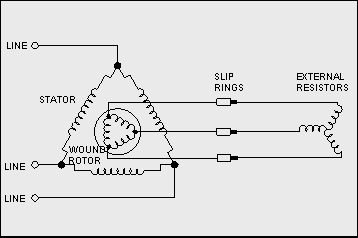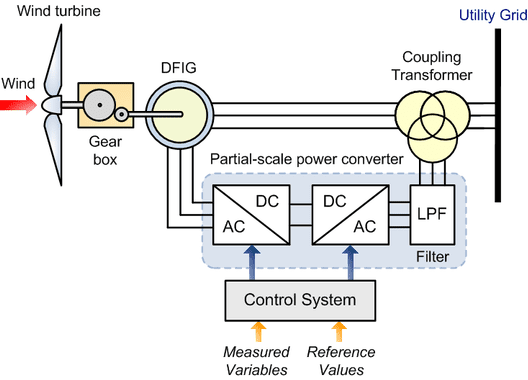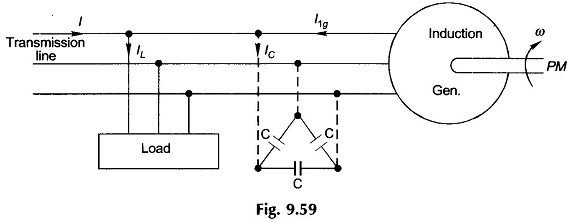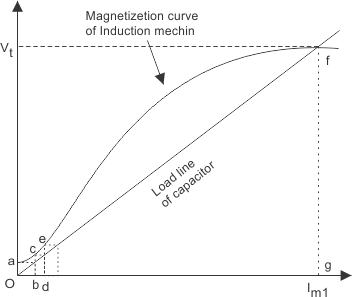The asynchronous generator is also called induction generator. It is used in small hydropower plants and wind turbines.
It is recommended to read the post about induction motor before continuing.
How it works?
Rotor of asynchronous generator must spin faster than synchronous speed n_{S}, this is the speed of rotating magnetic field. Depends on operating frequency f and number of poles P.
n_{S}=\frac{120\cdot f}{P}
In opposition to induction motor, where synchronous speed is higher than the rotor. Next is the slip formula s, where n_{R} is rotor’s speed.
s=\frac{n_{S}-n_{R}}{n_{S}}
If machine reach synchronous speed, slip will be zero and there will be no torque, because magnetic field is constant in relation to rotor. Asynchronous machine works as generator if slip is below zero, works as induction motor if s is between 0 and 1.

In generator mode, electromagnetic torque is negative because stays in opposite direction of primary machine’s torque. The rotor of asynchronous generator can be squirrel cage or wound rotor with slip rings.

In wound rotor, rings can be connected to external variable resistors to control current in rotor.

Frequency and amplitude of asynchronous generator depends on the load. To integrate the grid, some generation systems use a power converter to keep frequency and voltage in desired values.

Start in asynchronous generator
To generate electric energy, needs to produce induced voltage in stator’s coil. How to convert mechanical energy in electric? To start asynchronous generator, it is necessary to obtain reactive power from grid to form a rotating magnetic field. This field makes rotor spin like in a motor. For being linked to a primary machine, rotor’s speed must be higher than rotating magnetic field to generate active power. If the generator is insolated from grid? A self-excited generator have a capacitor bank in delta configuration to provide reactive power.

How capacitors give the start? Initially, the machine needs to be operated like a motor to produce a residual flux in rotor’s nucleus. This flux generates a very small voltage (a) in stator. The capacitor bank receives this small voltage (a) and discharge a current (b) stator’s winding. This current increases residual flux which increases generator’s voltage to (c), which produces current (d) from capacitor bank to generator gets voltage (e). Creating a cumulative process until reaches saturation.




